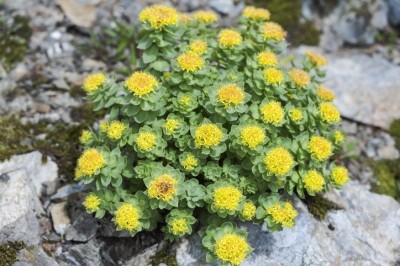NutraCast: Utilizing synthetic biology to preserve medicinal plants

“What we're increasingly seeing is a push across all industries to be more eco-friendly in their operations. Whether it's talking about packaging or supply chain, we see that companies are focused on this, but the one thing we continue to see is that we need to move the sustainability focus earlier into the process,” explained Grant Smith, VP of Corporate Strategy & Chief Brand Officer of Landkind.
"We need to not only focus on the downstream implications of how we're shipping something or how we're boxing something, but we also need to look at the fundamental sustainability of the product itself. And that's why we're so passionate about using synthetic biology to produce our compounds, because it creates opportunities to ensure sustainability by eliminating the need to disrupt the natural ecosystems of medicinal plants."
The company’s first product, rhodiola, is one of the oldest medicinal plants in existence. It is increasingly becoming a part of consumer wellness products due to its range of health benefits, but experts are increasingly noting the detrimental effects of global use on native plant populations. And as Smith pointed out, rhodiola has recently moved to an endangered species status.
“So that’s why we’re so passionate about using our team's knowledge of these Botanical constituents in order to make sure that we're following nature's blueprint and precision engineering these nature-identical compounds that open them up for consumer use without threatening the future of these medicinal plants,” Smith said.
To hear more on synthetic biology and the technology behind it, listen to the NutraCast.
You can also subscribe on iTunes, Spotify, Stitcher and wherever you get your podcasts.















